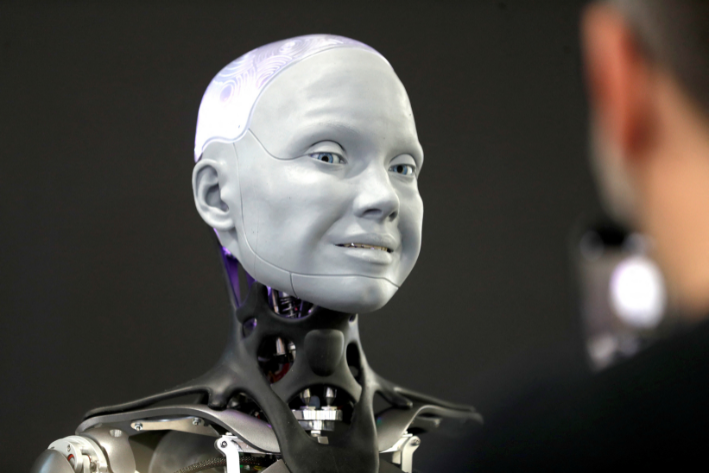Artificial general intelligence – the ability to think like humans – could be a reality in just five years, the chief of the world’s leading chipmaker claims.
Nvidia chief executive Jensen Huang said, at an economic forum held at Stanford University, that AGI could, by some definitions, be a reality before the end of the decade.
Huang, who heads the world’s leading maker of artificial intelligence chips used to create systems like OpenAI’s ChatGPT, though did add the answer largely depends on how the goal is defined.
If the definition is the ability to pass human tests, Huang said, artificial general intelligence (AGI) will arrive soon.
“If I gave an AI … every single test that you can possibly imagine, you make that list of tests and put it in front of the computer science industry, and I’m guessing in five years time, we’ll do well on every single one,” said Huang, whose firm hit $2 trillion in market value on Friday.
Also on AF: Risk of ‘Environmental Catastrophe’ from Ship Sunk in Red Sea
As of now, AI can pass tests such as legal bar exams, but still struggles on specialised medial tests such as gastroenterology. But Huang said that in five years it should also be able to pass any of them.
But by other definitions, Huang said, AGI may be much further away, because scientists still disagree on how to describe how human minds work.
“Therefore, it’s hard to achieve as an engineer” because engineers need defined goals, Huang said.
Huang also addressed a question about how many more chip factories, called “fabs” in the industry, are needed to support the expansion of the AI industry. Media reports have said OpenAI Chief Executive Sam Altman thinks many more fabs are needed.
Huang said that more will be needed, but each chip will also get better over time, which acts to limit the number of chips needed.
“We’re going to need more fabs. However, remember that we’re also improving the algorithms and the processing of (AI) tremendously over time,” Huang said. “It’s not as if the efficiency of computing is what it is today, and therefore the demand is this much. I’m improving computing by a million times over 10 years.”
- Reuters with additional editing by Sean O’Meara
Read more:
India Says Big Tech Needs Approval to Release Untested AI Tools
China’s AI ‘Supermind’ to Track World’s Top Scientists – Newsweek
AI Model Boosts Scientists’ Nuclear Fusion Energy Dream – IS
Cost Fears Delaying AI Take-Up, Infosys Chief Cautions
China Can Narrow AI Gap on US by 2026, Cyber Chief Claims: GT
Nvidia Worth $2 Trillion as AI Fever Grips US, Asia Markets
























